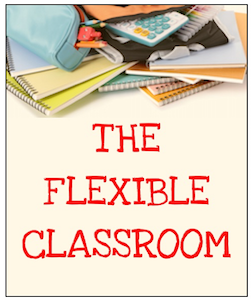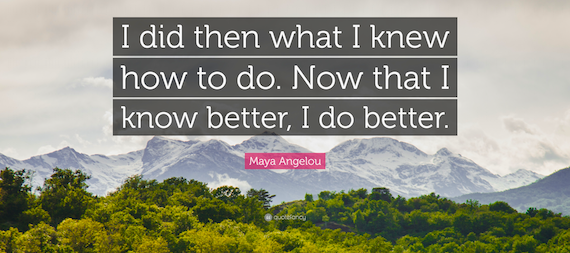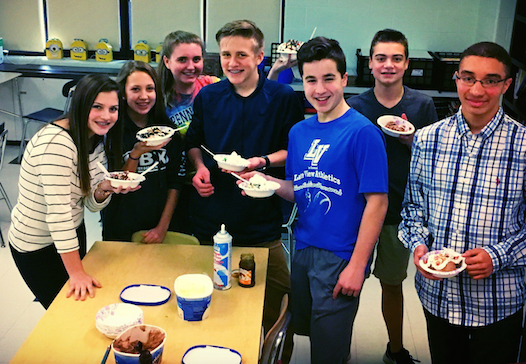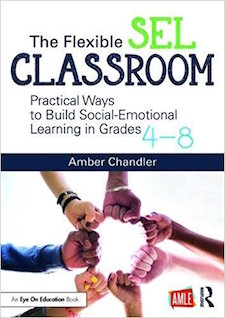A Practical Outlook on Teaching SEL Today
 I’ve been called a confessional writer, and while I have always agreed with that assessment, after this blog there will be no doubt.
I’ve been called a confessional writer, and while I have always agreed with that assessment, after this blog there will be no doubt.
As my second book came out this month, it made me a bit reflective of my own career as a teacher, and specifically about the ways my philosophies have changed. If you’re a veteran teacher, too, you might relate.
I’m embarrassed to say that in my time in the classroom I have done all of the following: taken off points for things that were out of a child’s control, given extra credit for ridiculous things, favored content over child, and sacrificed empathy in favor of “fairness.”
Luckily, people change, and I’ve taken great comfort in poet and novelist Maya Angelou’s advice for those of us whose past doesn’t hold up to our current standards:
SEL May Not Be What You Think It Is
I’d like to share with you a bit of a preview of the new book, The Flexible SEL Classroom: Practical Ways to Build Social-Emotional Learning in 4-8, while also taking a look at two factors that are crucial for middle level educators to remember about Social and Emotional Learning and the role that you might take in teaching it.
If you are like me, some of you might be thinking about meditating and yoga right now, while others might call to mind things like restorative justice. You wouldn’t be wrong about any of that, but these are not requirements for SEL.
In fact, I don’t do any of the meditating, yoga, and relaxation activities (yet), and I steer clear of the restorative justice stuff right now because I’m something of a lone wolf with SEL in my building and it would take a much broader buy-in and a more concentrated effort to do it right.
What I’d like you to think about SEL is this: we need to address the social, emotional, and academic needs of children equally, or we are just spinning our wheels, truly teaching only those who could probably teach themselves. We need to take an SEL approach because it is the practical and necessary thing that today’s effective teachers do.
If you are nervous, like I was, about taking on “something else,” then I’d like you to consider a few things:
No one of us is ever going to be enough, yet I know that in my own little room, in my own little corner of the building, in my small space in the world, I do have influence, and so do you. We are the watched. Students wait for the intonations of our voices, the touch on the shoulder, and the feeling that they are seen when they are in our presence.”
We can’t let our own feelings of inadequacy when we consider all the problems our students encounter stop us from solving the ones that we can. Those problems can be narrowed down, and we can provide them with some of the materials they need, some of the extra help they require, and some the compassion that they might be missing everywhere else. It is that simple.
We’re Teaching in a Different World
I know from my own experience that it is easier to “do school” the way it was done to us. Have I ever shamed a student for not being prepared for my class? You bet. I even said, “Where’d you think you were coming to? We write in ELA. You need a pencil.”
Looking back, I’m just sick about it. Why would I say such a thing? Easy. It’s because that is where I came from, and that was what school was like for me. However, I can’t be the teacher my teachers were back then, because even the best of them were not operating in our current circumstances. In those days of teaching, there wasn’t widespread internet, cell phones, virtual reality, or widely diagnosed ADHD, and loads of research that tells us that kinder, gentler classrooms are better learning environments.
Don’t let the noise from the outside world ever make you doubt the important work that occurs in your classroom, work that is so great in magnitude that it is simply not measurable on an assessment.”
Teaching is hard work. You can start to doubt your impact. You can become exhausted. You can get caught up in the political rhetoric and feel that you have to defend yourself (and your salary) to everyone.
This is noise, and it is cyclical, and you have to control the volume. Don’t turn it off completely because it is always crucial to know what the general din about our profession is at a given time. However, celebrate your successes. Remind yourself of the great classes, the important stories, the defining moments, and all the times you’ve pulled a kiddo back from harmful behaviors, simply because you cared.
The tough part is that all of the caring for others sucks the energy out of us, and we have our own families and lives (and baggage) to deal with. That is why it is critically important for us to share the success stories of our classrooms and students in order to bolster ourselves for the tough days. I just recently added a “Chandler Alumni” page to my website, creating a network for my students (current and former), but also a reminder to myself that I had a part in their successes.
There Are Things We Just Have to Challenge
I’ve always had a “teach and let teach” philosophy, but as this book comes into the spotlight, I’m accepting a new fact – there are some practices that I won’t tolerate without challenging, on behalf of my students, and frankly, my profession. (Check out my “5 Things to Stop Doing Right Now” webinar).
I don’t claim to know all the answers, but I do know that there are too many antiquated teaching practices in place that are harming kids and must be challenged, and it is our responsibility to do so, as uncomfortable as that may be.
I used to think “Well, I don’t teach that subject, so I don’t know what I’d do,” but I’m past that now. I know, and my book explores, better practices that will improve students’ social and emotional well being. We should be doing better than we have before.
This statement might not resonate with everyone, and I’m taking that chance. But I’d rather a teacher think about it and thoroughly disagree with me than do the same activity, the same way, with the same resources, as that teacher has done for his or her whole career.
When we know better, we should do better.”
































